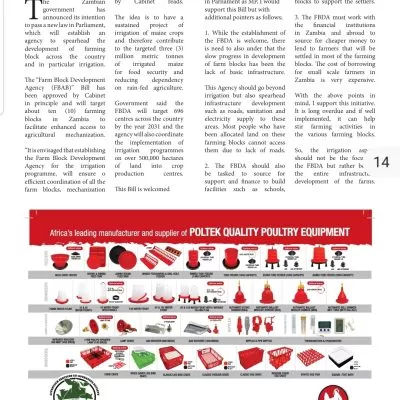By Kalata News
Lusaka, June,2025 – COMPANIES are now cutting corners as they try to keep their operational costs contained in response to increasing energy bill.
The energy bill as forced many companies to reduce on their products ingredients and or sizes as they try to keep the markets satisfied.
Companies are therefore finding creative ways of maintaining the quality of their services and products while increasing on their retail prices.
Unfortunately, this is not so.

For some products like sugar, mealie-meal, the average weight of the products has slightly reduced whereas flour products like bread, buns and cakes have become too lightweight while maintaining the same outward size.
A Study by the Energy Regulation Board (ERB) on impact of load shedding established that “load shedding had adverse disruptions in the operations of most enterprises in the survey areas as these had inadequate response strategies as they could not use alternative sources of energy. Most enterprises resorted to reducing their work outputs resulting in reduced turnover whilst incurring additional costs such as idle labour and overtime.”
In the survey, 22.8% of establishments reported cases of idle labour while 9.8% reported incurring overtime labour costs due to load shedding. In the survey, 29.9% reported damaged equipment due to load shedding. Furthermore, only 11.7% reported that such equipment was insured.
The ERB report states that, “as a result of long hours of load shedding, there was an outcry by ZESCO’s customers concerning the negative impacts of load shedding on their routine and core business activities. In particular, some businesses especially small ones, indicated that they had to lay off workers while others had to close as they could not generate sufficient revenues due to reduced production, to meet the business expenses.”

The report continues: “Firms suffer three kinds of damages in the case of an outage. First, they produce less, without electricity, many production processes stop, some production is lost, for example unsaved computer files, and it takes time to start up production again. Second, extra costs may be incurred such as paying overtime pay to workers. Third, some goods and inputs may be damaged, for example hot steel in a steel plant may cool down and have to be reheated. The damage caused by an electricity interruption in a firm is equal to the value it would normally have added during that period (Kaseke & Hosking, 2012).”
Last year, a World Bank reported stated that Zambia’s GDP growth slowed from 4.1% in 2022 to 2.5% in 2023, primarily due to the energy crisis. The loss in productivity and increased operational costs have led to a decline in industrial output by 10%, with the manufacturing sector alone losing approximately $1 billion in potential revenue.
The Jesuit Centre for Theological Reflection (JCTR) warns in their report on the effects of load shedding on citizens that Load shedding will threaten the growth of Zambia’s economy and the general welfare of citizens. The consequences of reduced output in various sectors such as mining, manufacturing and the informal sector will be lay-off of workers, loss of income among families, reduction in government revenue to be collected and reduced foreign exchange.
Vincent Bizimana, Head of Business Management at Texilla America University Zambia (TAUZ) in his study on the effects of load shedding explains that operations, from production to customer service, are significantly affected, leading to missed deadlines and dissatisfied customers.
Dr. Bizimana says businesses struggle with the high costs of alternative power sources like generators, which strain already tight budgets and reduce profitability where as employee morale and productivity suffer due to stressful work environments and reduced operational efficiency.
“Businesses dealing with perishable goods, such as groceries or restaurants, are particularly vulnerable. Power outages disrupt refrigeration and storage, jeopardizing product quality and safety. This disruption cascades through the supply chain, affecting suppliers, distributors, and consumers,” he writes in his report ‘The Impact of Load Shedding on Small Businesses in Zambia.’
Reduced Profitability
Businesses may need to increase costs to cover additional expenses, risking competitiveness in the market. In severe cases, prolonged power outages can force firms to reduce staff or temporarily shut down operations, further compounding financial losses.
The inability to operate machinery or access digital tools during power outages directly reduces productivity. Employees may be unable to complete tasks efficiently or resort to manual methods, slowing operations and affecting overall output. Productivity losses during load-shedding periods further exacerbate financial challenges for small businesses.
A manufacturing Indaba held in Johannesburg noted that Load shedding disrupts major manufacturing processes by causing unplanned downtime. This leads to reduced production output, delayed orders and an overall decrease in productivity. Manufacturers may struggle to meet customer demands and face challenges in maintaining production schedules.
It also disrupts Supply Chain since most manufacturing often relies on a complex network of suppliers, partners and customers. Load shedding can disrupt this supply chain, leading to delayed deliveries of raw materials, components and finished products. This, in turn, affects the entire
With all these, consumers are now at the receiving end of being served products and services that are clearly twice as bad as before the load shedding period started but are twice as expensive as before.
The onus therefore is on the captains of industry to ensure that load shedding does not severely compromise the standards and quality of products, which might lead to all consumers being worse off than before.




